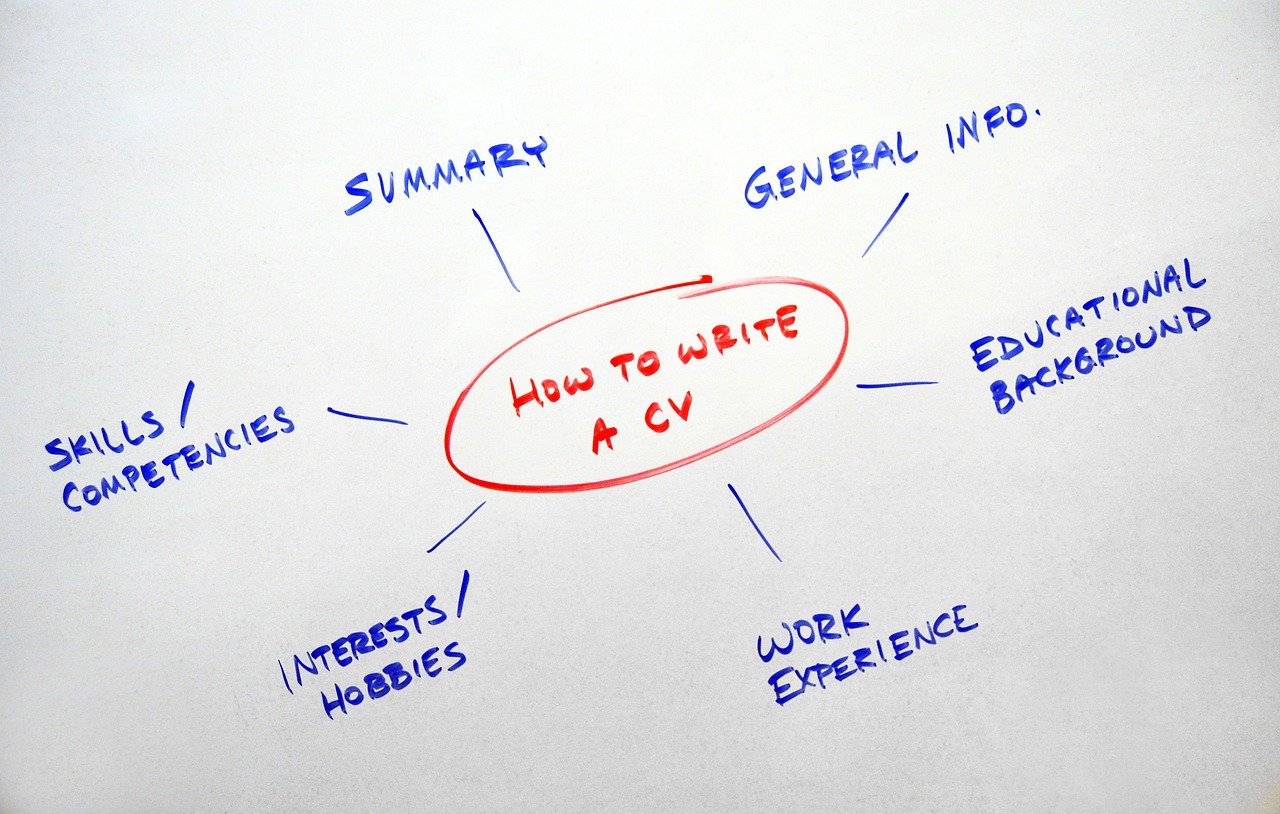
10 hacks how to build ideal CV in 2021
No matter if you are a freelancer, or a full-time job seeker, first impressions always count. Especially if the competition on the announced vacancy is high, you need something special to stand out from the crowd. You need a winning CV.
So how to catch an employer’s eye on your CV?
According to Arizona University’s research 56% of HR managers when scrolling down from one resume to another, when reading your one are looking to see if you are the professional that you pretend to be. For example, if you are applying for a marketing and communications manager, how is your CV designed, is there included a link to your portfolio with cases or not? If you are a copywriter, how accurate is your spelling, what is your writing style, and is there any link on your articles, or projects? If you are a salesperson, are there some statistics about your previous sales achievements, and sales goals?
Thus your CV structure, design and style define will you go to the next hiring stage or not. On the other hand, CV structure and style should come from your profession and your experience.
Let’s go through some necessary and universal hacks about an ideal CV that matches any job title.
What to include?
According to UK’s National Careers Service, an ideal CV should be no more than 2 pages. A standard CV in UK should be written in the chronological style, and there are some necessary parts for all types of CVs:
Contact information
In this section there should be: your full name, mobile number and email address. Unless you’re applying for a babysitter vacancy with requirements about neighbourhood living you don’t need to include your address. You don’t have to include your date of birth or a photograph. To be sure you meet all employer’s requirements, we advise you to read every job description you are applying carefully because sometimes you need to adjust the resume to a specific vacancy’s requests.
Profile
A CV profile is like an advertisement statement that highlights your key competitive advantages and helps you stand out from the crowd. Usually placed at the top of the CV, after contact information, it resumes the most relevant achievements and skills to the position. Keep your profile statements short and snappy – no more than 70-100 words.
Experience
Work experience should be listed in chronological order. But where to get this section before or after education? If you have more than three years of experience, it should come before education. If you are a student with only internship experience, after contact information, you should continue with the education section.
In the work section, you’ll need to give details of:
- the employer’s full name
- the title of the job according to your contract
- Your responsibilities, a brief outline of your daily tasks
It’s highly recommended to use such words as are: “organized”, “managed” or “planned”, “reached”.
If you are an experienced professional, you can use a skilled-based cv to group your projects history with our service.
Education
In this section chronologically should be listed your education, we don’t mean including information about your school if you apply to middle or top positions.
Place the most recent first degree. This section is about higher education, college, bachelor, master or upper degree’s information.
Each education line should tell about:
- the names of your qualifications according to your diploma
- the school, college, or university full name
- the dates you attended it
Skills
The skills list should be relevant to the position you are applying for. If you are not seeking a chef’s job, you don’t need to write about your cooking skills or something too personal that doesn’t match the vacancy. Keep in mind that some technical positions require a detailed skills list, with our skill-based cv service you will not miss key points.
References
To include the references, contact date, or not to do? This is a big question. According to UK’s National Careers Service, you should leave out this information until the next hiring stage considering personal data law.
Hobbies interests or achievements
This section is only permissible for candidates with little experience. Actually, “jogging”‘ and “reading” aren’t going to catch a recruiter’s attention; it takes place on your resume, making it bigger and less readable.
CV types – what format do I need to use?
As already said, CV styles differ by profession, and sometimes the wrong one leaves you zero chances to be called for a job interview.
You may need 5 key CV styles for your next job interview.
- Chronological CV – it’s a list of your work and education history placed by recent date.
- Skilled-based CV – in the experience section, it focuses on your vacancy-related skills
- Technical CV is generally used to show industry-specific skills in technical professions, such as Development, engineering, and construction.
- Creative CV – used by designers, marketers, and other creative staff and contains a link to an online portfolio with cases.
- Academic CV – generally longer than a traditional CV with four or even 6 pages and often is used for lecturing, teaching vacancies.
If you’re applying for your first job, you can focus on the skills you’ve learned through university projects, internships, volunteering projects. But if you need a skilled-based, or technical CV, which are harder to create correctly independently, its recommended to use professional cv-writing services.
Creative formatting – do it can be annoying?
When it comes to resumes, CV’s content is the most important. It should be designed in a conservative, minimalist style than something creative that’s hard to read and concentrate on. Unless you’re applying for a job such as a designer or social media manager, your focus should be on making your resume clean and experience-oriented.
UK’s National Careers Service advice, when writing a CV to remember to:
- research the company, does your CV match all requirements
- choose a CV type that meets the job description
- use fonts like Times New Roman or Calibri, with size 11 or bigger
- when describing responsibilities or your achievements use a bullet to make texts it easier to read
- check if the keywords in the vacancy are used in your CV
- get some of your friends to read it to check grammar one more time
- always attach a cover letter that should be written for applying company.
The ‘So What’ CV
We end where we started. Your CV defines will you get called for a job interview or not. Actually, your CV is selling you. Here are the top ten tips that get you on the next stage:
- Keep it real. Describe your responsibilities, and even if you were a volunteer, keep telling about your achievements.
- Don’t give a significant gap in your experience or education. If you have an unemployment period, avoid using chronological style, you can try the skilled-based style.
- Use active verbs. For example, include words like “analyzed” and “reached” to present yourself as a task-oriented person.
- Your email should sound serious. If your address contains some nicknames, date of birth information, it’s not serious and is inappropriate. Create a new account for professional use.
- Make it look good. The structure, words, all content should be easily readable.
- Make PDF format. Never send your CV in a word format. An employer may have different fonts, or word types, so your resume if sending in the word may open with some wrong spaces, or fonts. Thus it is highly recommended to send it in PDF format.
- Avoid ‘Curriculum vitae’ headings on the top. The employer knows he’s looking at your CV and not a new book press release.
- Leave out the reason why you left the job. This extra information in your CV may show you to the employer in a negative way. Actually, on the job interview HR manager will ask if wanted about your leaving.
- Salary information is extra. If only the vacancy description doesn’t require it.
- Avoid using jargons. Your writing style should be clear, academic and professional.
Get help with your CV
You may say it’s complicated. But if you are not a well-known professional, like a personal brand, who knows everyone in your industry, employers don’t know how good you are. They look at hundreds of CV’s that looks the same, at first glance and decide to whom call by 2 pages of your CV. And you maybe have near 30 seconds to catch their eyes on your CV. No matter If you’re a recent graduate or professional job seeker, you can get professional advice from your CV making service.
Find out more at our services how to get an ideal CV that will sell you.


